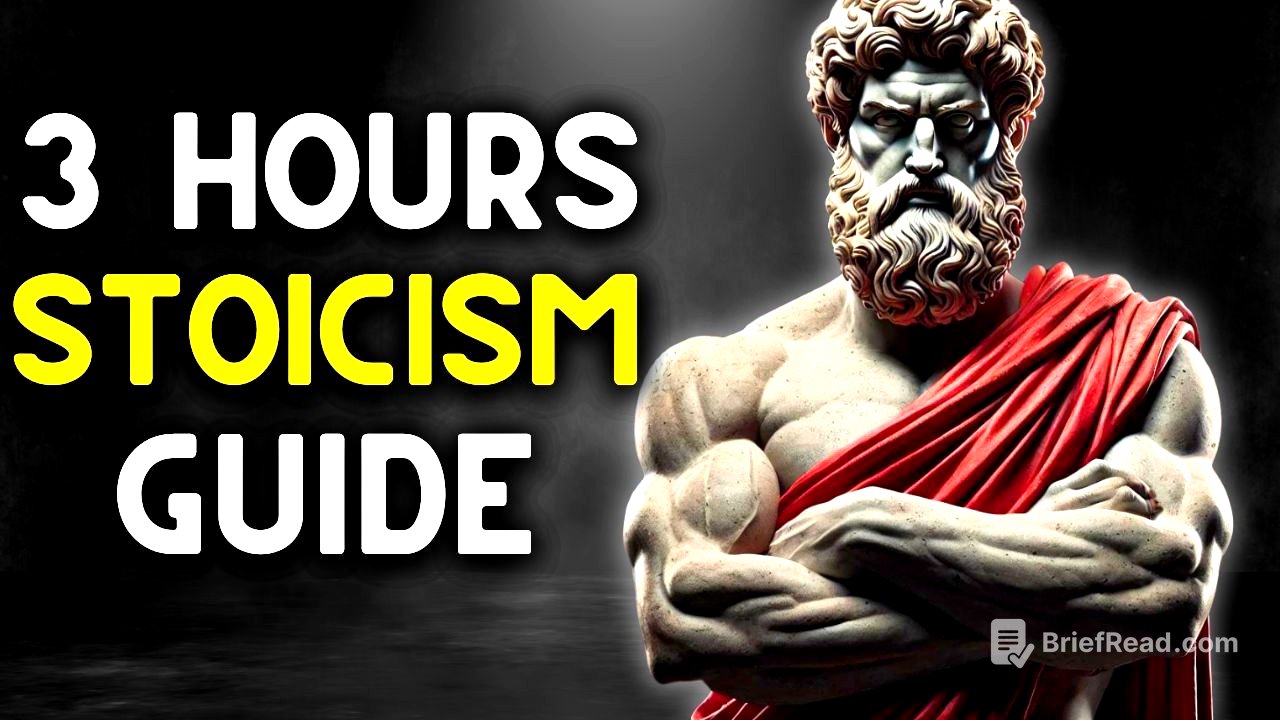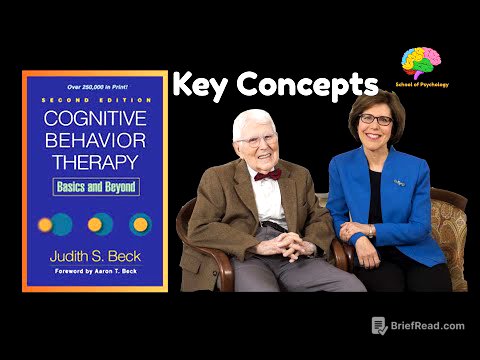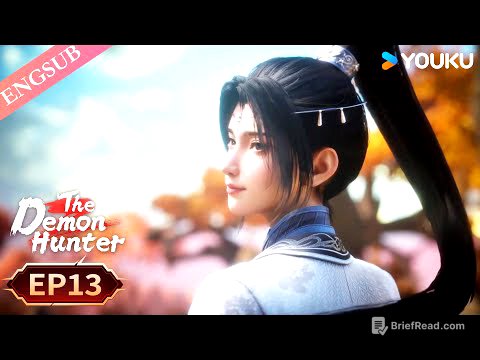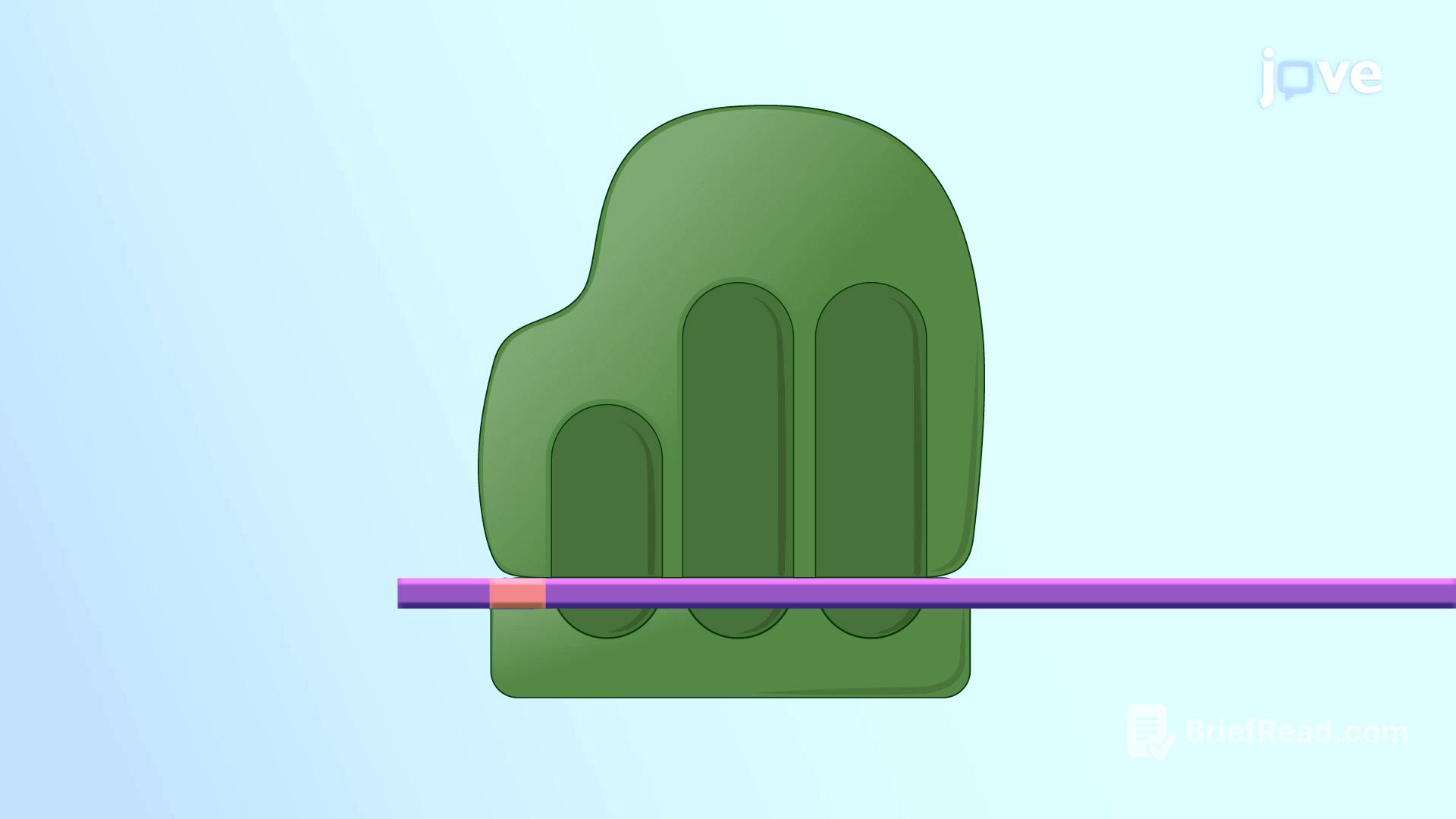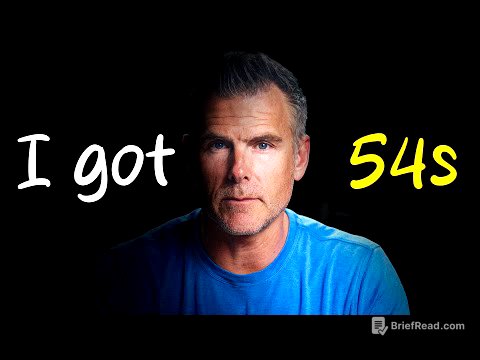TLDR;
This YouTube video provides a comprehensive guide to stoicism, minimalism, and their combined application for a more fulfilling life. It explores the core principles of each philosophy, their historical context, and practical ways to integrate them into daily routines. The video also examines the teachings of prominent stoic philosophers like Marcus Aurelius and Epictetus, offering actionable advice for building resilience, managing emotions, and finding inner peace. Additionally, it touches on Eastern philosophies and religions, highlighting their commonalities with stoicism and minimalism.
- Stoicism offers inner peace, self-control, and mental toughness.
- Minimalism encourages decluttering physical and mental spaces for a more meaningful life.
- Combining stoicism and minimalism creates a strong foundation for a clear, strong, and deeply meaningful life.
Minimalism and Stoicism: Letting Go for a Meaningful Life [3:04]
The video introduces minimalism as a lifestyle focused on eliminating unnecessary possessions and distractions to prioritize what truly matters. Originating as an art trend in the mid-20th century, minimalism has expanded into various aspects of culture, emphasizing simplicity and intentionality. People are increasingly adopting minimalism to reclaim their time, space, and focus, fostering deeper relationships and pursuing meaningful hobbies.
The Essence of Minimalism [6:59]
The minimalist movement emerged as a reaction to consumerist culture, emphasizing a less complicated and more meaningful life. Key principles of minimalism include simplifying one's surroundings, being mindful of choices, and prioritizing quality over quantity. This lifestyle offers numerous benefits, such as improved mental clarity, financial freedom, and a reduced environmental impact. While minimalism has faced criticisms regarding accessibility and potential for consumerism, it remains a valuable tool for self-discovery and aligning one's life with their values.
The Roots and Principles of Stoicism [14:26]
Stoicism, originating in ancient Athens around the 3rd century BC, focuses on inner simplicity through self-control, logic, and ethics. Stoic philosophers like Seneca, Epictetus, and Marcus Aurelius taught the importance of controlling one's perceptions and responses to external events. The core principles of stoicism include reasoning, controlling responses, and seeking virtue as the ultimate good. This philosophy provides a framework for dealing with problems objectively and finding opportunities for growth.
The Convergence of Minimalism and Stoicism [19:17]
Minimalism and stoicism share a common ground in their emphasis on letting go of excess, whether material possessions or mental constructs, to achieve a meaningful and values-driven life. While minimalism focuses on simplifying the external world, stoicism centers on simplifying the internal world. These philosophies complement each other, with stoicism providing the wisdom and virtue to guide the purpose and simplicity of minimalism.
Practical Application of Stoicism and Minimalism [27:34]
Integrating stoicism and minimalism into daily life involves decluttering physical spaces, being mindful of consumption, and prioritizing quality over quantity. Stoic practices include understanding the duality of control, making values-based choices, and practicing self-awareness. Real-life examples, such as the stories of Joshua Fields Millburn, Ryan Nicodemus, and Tim Ferris, illustrate how combining these philosophies can lead to personal growth and a more meaningful life.
Challenges and Eastern Philosophies [32:32]
The path to combining minimalism and stoicism presents challenges, requiring commitment and a willingness to step outside one's comfort zone. It's essential to approach this journey with kindness and patience, recognizing that it's a continuous process of growth and change. Eastern philosophies, such as Buddhism, Taoism, Hinduism, and Confucianism, share commonalities with stoicism and minimalism, offering additional insights into mindfulness, balance, and non-attachment.
Marcus Aurelius and the Antonine Plague [45:50]
During the Antonine Plague, Emperor Marcus Aurelius demonstrated exceptional leadership by integrating stoic principles into his response. He maintained courage, strength, and kindness, encouraging his people to find inner peace and view the crisis as an opportunity for self-improvement. Aurelius's stoic approach provided security, courage, and hope, enabling the Roman Empire to eventually recover.
Stoic Principles for Self-Discipline [52:27]
Stoicism emphasizes the development of virtue and fortitude in the face of difficulties, with self-mastery achieved through self-control and discipline. Marcus Aurelius exemplified these principles, using them to navigate life's challenges with strength and knowledge. Key stoic principles include controlling one's thoughts, accepting what is outside of one's control, and setting values-based goals.
Practical Strategies for Self-Discipline [57:42]
Practical strategies for developing self-discipline include consistent self-assessment, daily exercise, mindfulness, gratitude, and fostering communal support. Marcus Aurelius emphasized the importance of controlling one's mind, focusing on what can be changed, and setting goals aligned with one's values. Building resilience involves accepting life's flaws and seeing setbacks as opportunities for growth.
Lessons from Marcus Aurelius's Meditations [1:06:10]
Three key lessons from Marcus Aurelius's Meditations include the power of the present moment, separation from outward approval, and adaptability and acceptance. Focusing on the present allows for meaningful actions, while detaching from external validation fosters inner virtues. Embracing adaptability and acceptance transforms challenges into opportunities for growth.
Epictetus and the Power of Stoic Thought [1:16:06]
Epictetus, a former slave turned philosopher, transformed his life through stoic thought. His teachings, compiled in the Enchiridion, offer practical guidance for living a virtuous life. Stoic philosophy centers on controlling reactions to external events and cultivating inner strength, wisdom, and resilience.
Lesson 1: Control What You Can [1:19:12]
Focus energy on what is within control (thoughts, beliefs, actions) and accept what is not (external events, actions of others).
Lesson 2: Embrace Fate [1:21:27]
Accept fate and embrace the natural course of events in life.
Lesson 3: Pursue a Virtuous Life [1:23:54]
Pursue virtue (moral excellence) as the ultimate goal in life.
Lesson 4: Detach from Material Possessions [1:26:13]
Develop a sense of Detachment from material possessions and external circumstances.
Lesson 5: Practice Self-Discipline [1:28:30]
Practice self-discipline and self-control.
Lesson 6: Overcome Fear with Rational Thinking [1:30:25]
Overcome fear and anxiety by focusing on rational thinking.
Lesson 7: Treat Others with Kindness [1:32:50]
Treat others with kindness and empathy.
Lesson 8: Learn from Criticism [1:35:11]
Learn from criticism and not be affected by others' opinions.
Lesson 9: Develop Resilience [1:43:55]
Develop resilience in the face of adversity.
Lesson 10: Reflect for Self-Improvement [1:46:10]
Reflect on one's own thoughts and actions for self-improvement.
